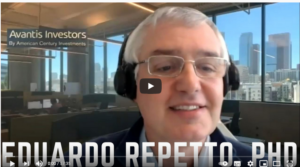
By Anna Malazhavaya
Special to the Financial Independence Hub
For better or for worse, cryptocurrencies have gained popularity, at least in part, due to their anonymity. As the industry develops and tries to shake the “crypto-is-for-criminals” reputation from its early days, the anonymity in certain areas fades.
Know Your Client requirements at crypto exchanges have become quite sophisticated. News reports keep appearing about popular crypto exchanges, such as Coinsquare in Canada and Coinbase in the United States, handing information about their account holders to local tax authorities.
The price of Bitcoin has more than tripled in the last four months. As lucky crypto investors consider whether to HODL (Hold On for Dear Life) or sell, they can be certain the taxman is watching. When can information about your crypto investments and earnings become available to the Canada Revenue Agency? Here are a few examples.
1.) If you are audited, the CRA auditor can get access to your crypto exchange account
If you are audited by the CRA for any reason, the auditor may come across a crypto exchange purchase on your bank or credit card statement. If so, expect follow-up questions from the auditor. If the auditor asks about your assets, you must disclose all your assets, including your crypto portfolio. Lying to the CRA is never a good idea and can lead to criminal charges.
The CRA has the power to compel third parties, including currency exchanges, to disclose information related to your crypto account activity through a so-called Requirement for Information (“RFI”). If a crypto exchange receives such RFI, they must either comply with it, dispute it at the Federal Court, or face criminal charges. Most Canadian-based exchanges will promptly release your information to the CRA.
2.) Even if you are not currently audited, the CRA may get access to your crypto exchange account as part of a so-called “unnamed persons” RFI
In some cases, the CRA can ask the Federal Court for an order to compel third parties to disclose information on a group of “unnamed persons” if the group is “ascertainable” and the purpose of the request is to verify the tax compliance of these taxpayers. A recent example of the CRA successfully exercising this power was a Federal Court order compelling Home Depot to disclose information about the accounts of its commercial customers. It appears that the CRA won’t hesitate to use this power when dealing with crypto exchanges.
In September of last year the CRA filed an application in Federal Court seeking an order to compel Coinsquare Ltd., a popular Toronto-based digital asset exchange, to disclose activity of its clients. All its clients. And all the way back to 2013, no less. Coinsquare disputed the application arguing that the group was not “ascertainable” and that the CRA engaged in a “fishing expedition” invading the taxpayers’ privacy.
On March 23, 2021, in its blog post, Coinsquare announced that it reached an agreement with the CRA for an order, whereby only a portion of accounts would be disclosed to the CRA on or before April 6, 2021. Coinsquare would produce to the CRA information on accounts valued at $20,000 CDN or more on December 31 in the years 2014 through 2020, along with 16,500 of the largest client accounts by trading volume during those periods.
3.) Proceeds of Sale of Cryptocurrency can be visible to the CRA
Whether or not you used a popular crypto exchange platform to sell or spend your cryptocurrency, the CRA may question the source of proceeds (traditional currency or assets purchased with cryptocurrency) you received in exchange. If you are audited, your reported taxable income should be consistent with that large deposit in your bank account or that late-model Tesla parked in your driveway. If the CRA finds a discrepancy, the consequences can be very serious.
4.) Crypto investments are only anonymous while your crypto address is not linked to your name. But if the CRA makes the connection, look out
Using the same crypto address for sending and receiving some types of cryptocurrency is like writing under the same pseudonym. If anyone ever connects your real identity to the pseudonym, all you ever published under the pseudonym will then be linked to you. Continue Reading…





